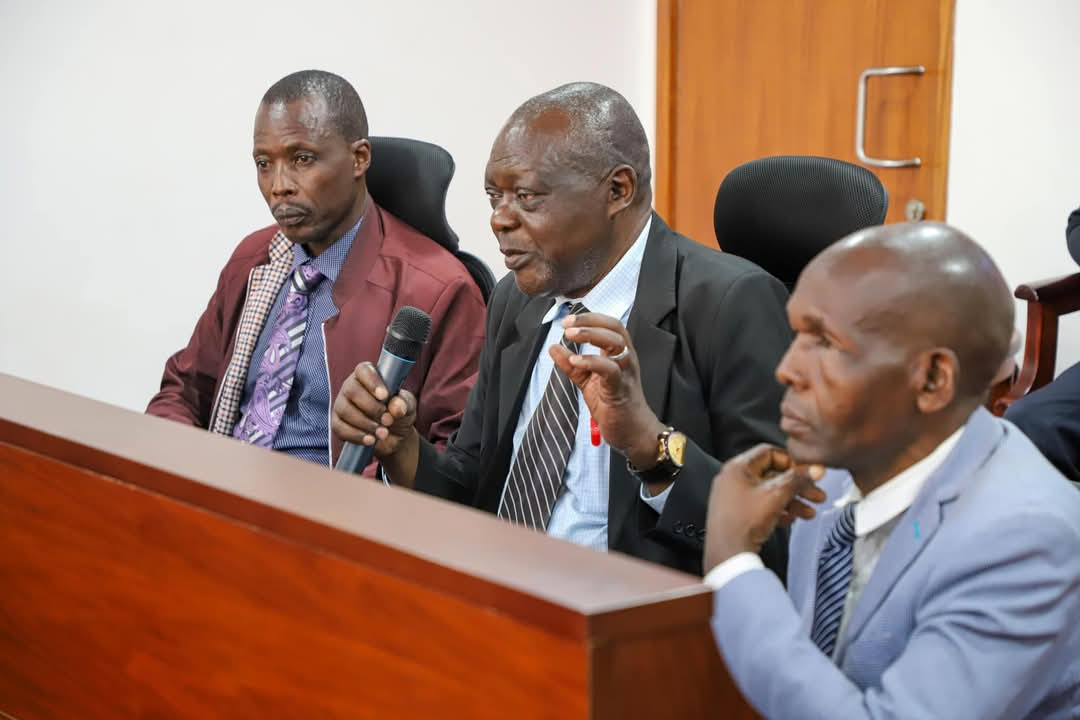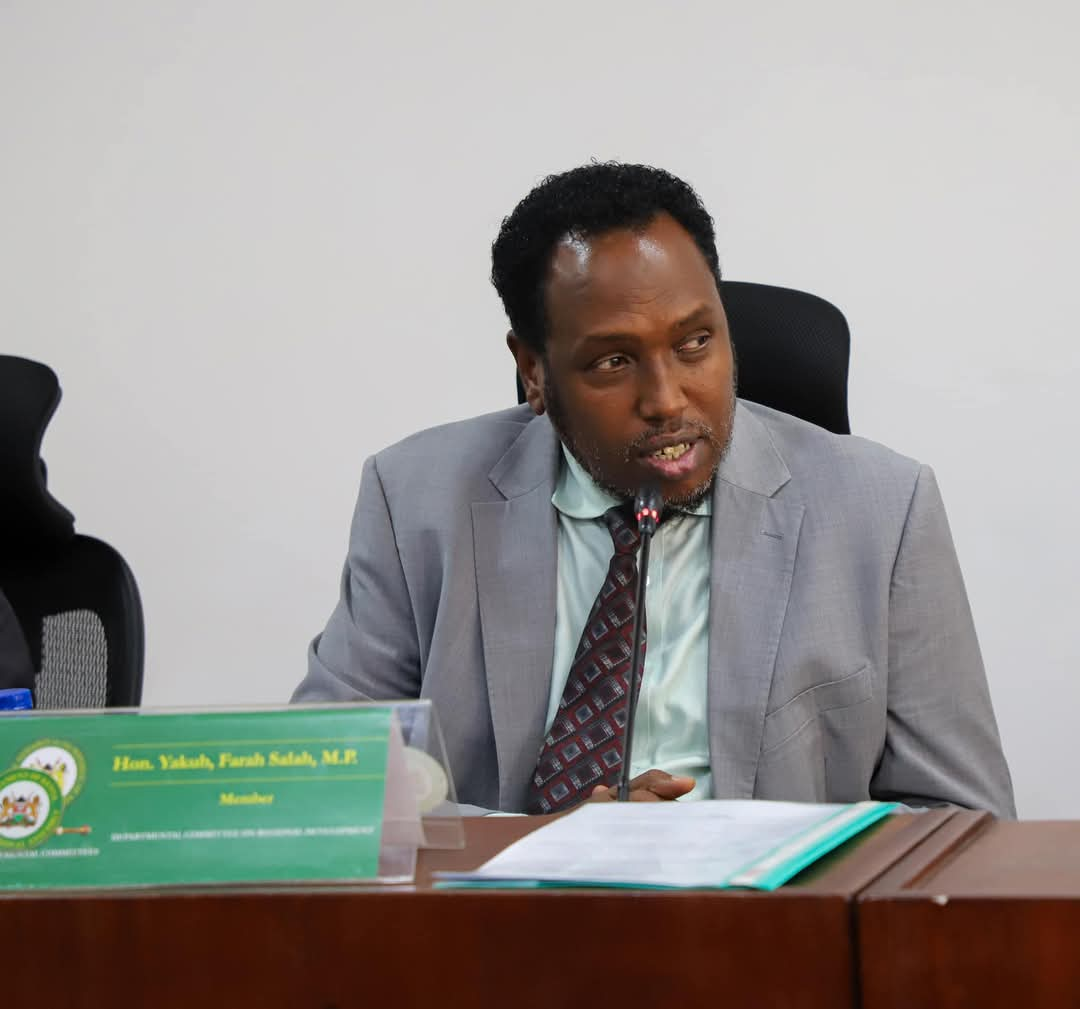Inaugural Fire Brigade Profession Bill Lands In Parliament
BiIl seeks to establish the Institute of Fire Brigade Professionals (IFBP) among several other key services.

Kenfiba officials presenting Bill to the House committee.
- House Regional Development Committee to review the Bill.
- The Bill also recognizes the vital role of police and medical teams in emergency management.
The first Kenya Fire Brigade Profession Bill, 2024 has been presented to the National Assembly for processing into law that will revamp fire disaster management services and investigations.
The comprehensive legislative document is before the House Regional Development Committee for review.
The Bill, introduced by the Kenya National Fire Brigades Association (Kenfiba), will if processed, play a pivotal role in professionalizing the fire brigade sector and enhance public safety through a more coordinated emergency response system.
The Committee chaired by Sigor MP Peter Lochakapong, will assess the potential impact of the Bill, with particular focus on its provisions, to establish the Institute of Fire Brigade Professionals (IFBP), a key body that will be responsible for overseeing the training, certification, and professional development of fire brigade personnel in Kenya.
The Committee will also evaluate the feasibility of integrating fire services with police and medical emergency teams and explore how these efforts align with national development goals.
Kenya National Fire Brigades Association chief executive officer, Mr. Bernard Onyango, stated that the Fire Brigade Profession Bill, 2024 aims to create a comprehensive framework that enhances the quality, safety, and coordination of fire services in Kenya.
A central aspect of the Bill is the creation of the IFBP, which if adopted, will be expected to ensure fire brigade personnel are well-trained, ethically grounded, and continuously improve their skills.
“The Bill envisions a modern, professional fire service that works seamlessly with police and medical teams to respond effectively to emergencies and disasters,” Mr. Onyango told the Committee.
He added that the Bill would ensure Kenya’s fire brigade services operate in alignment with global best practices, drawing insights from fire service models in countries such as the United Kingdom, Australia, and Canada, which have seen significant benefits from professionalizing their fire brigade services, including improved response time, public safety, and enhanced inter-agency collaboration.
Kenya National Fire Brigades Association Secretary General, Francis Omolo Liech, emphasized that the Bill mandates standardized training and certification for all fire brigade personnel.
“It will establish a national curriculum for firefighting and emergency response, ensuring personnel have the necessary skills to handle a range of emergency situations,” Mr Liech said.
The Institute of Fire Brigade Professionals will also enforce a Code of Conduct for fire brigade personnel, ensuring they adhere to high ethical standards and are held accountable for any misconduct.
A key provision of the Bill is the integration of fire brigade services with police and medical emergency teams, aiming to improve the overall effectiveness of emergency response.
By working together in a coordinated manner, these agencies will be better equipped to tackle disasters, fires, accidents, and other emergencies.
In addition to responding to emergencies, the Bill emphasizes proactive fire prevention. Thus, fire brigade personnel will play a role in public safety campaigns, fire safety education, and building safety protocols to reduce fire-related risks and impact.
The Bill also recognizes the vital role of police and medical teams in emergency management.
It highlights the importance of joint training and simulations involving fire brigade personnel, police officers, and medical teams, allowing all agencies to practice coordinated emergency responses to various scenarios such as large fires, natural disasters, and industrial accidents.
The Bill proposes that police officers will secure emergency scenes, assist with evacuations, and investigate fire causes as may be necessary, including cases of suspected arson. Medical personnel will provide immediate care to victims of fires and other disasters, offering first aid, managing trauma, and coordinating emergency evacuations to healthcare facilities.
According to the presentation made before the Committee, the Fire Brigade Profession Bill, 2024 draws inspiration from successful fire service models in the United Kingdom, Australia, and Canada, which have long recognized the importance of professionalizing fire services and fostering collaboration between fire services, police, and medical responders.
By establishing the IFBP and fostering closer coordination between fire brigade personnel, police, and medical teams, the Bill aims to create a highly skilled and well-coordinated emergency response workforce in Kenya.
The Committee chairman Lochakapong pointed out that the Bill presents a significant step towards modernizing Kenya’s fire brigade services. He noted that the Committee would give the draft law thorough consideration.
He said the committee would review the Bill, and ensure it undergoes public participation, to elevate it to the next level of the legislative process.
Mr Lochakapong expressed appreciation for the passion shown by Kenfiba officials, saying the Bill will be a great asset to the country.
Kabuchai MP Majimbo Kalasinga emphasized that it is high time fire safety in the country was given utmost attention to prevent loss of property and lives. He urged the Committee to treat the Bill with the seriousness it deserves.
Kalasinga noted that in some parts of the country, when a fire breaks out in a building, the response is often chaotic, with people simply rushing to the scene, hoping the fire will subside.
He stressed the need for a more organized and effective firefighting approach, similar to what is seen in developed countries, where private firms are contracted to fight fires in specific regions, and fire sensors are installed in buildings to aid in quick responses during emergencies.
“Fire does not only destroy buildings and schools. In regions like Bungoma, where I come from, fires can devastate entire plantations, such as vast sugar cane fields. Will this bill address such concerns?” he asked.
A Committee Member, Mr Tungule commended the team for drafting the Bill. He expressed hope that it would help tackle the growing fire hazards in the country and bring the much needed order and efficiency in firefighting efforts.
This legislation is expected to improve the quality of fire fighting services by contributing to safer and more resilient communities across Kenya.
The anticipated review of the Bill by the House Regional Development Committee is an important step that will ensure the effective implementation of fire service provisions, aligning them with the broader goals of public safety and national development.





